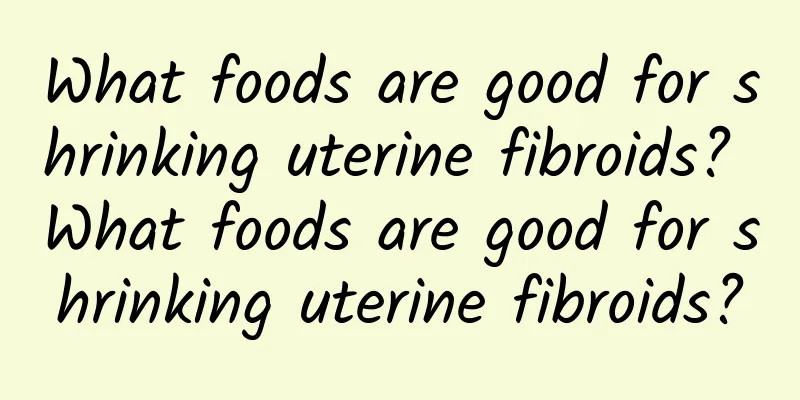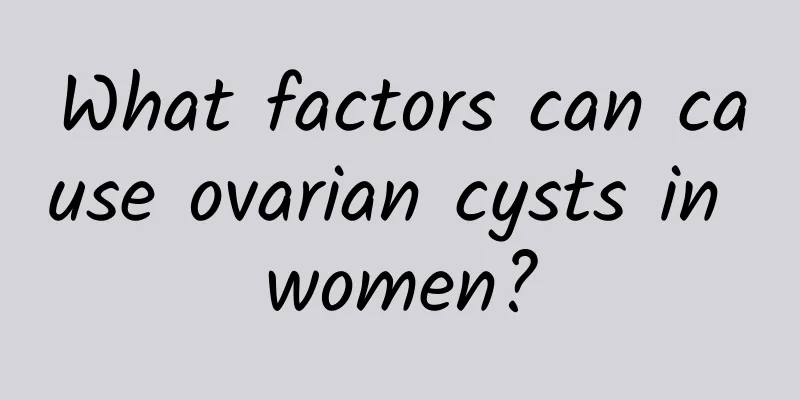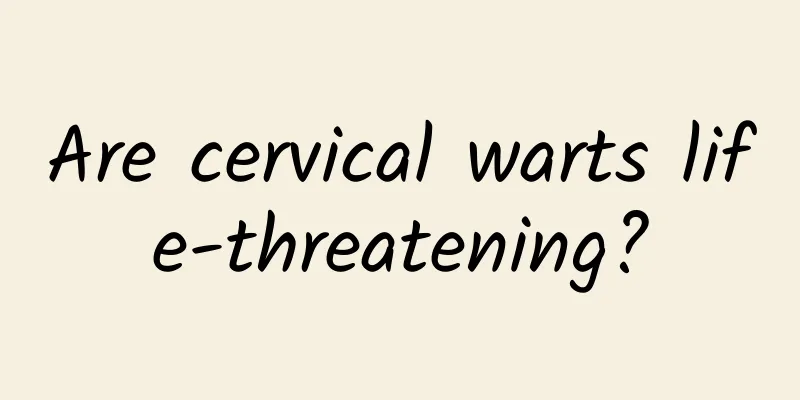What foods are good for shrinking uterine fibroids? What foods are good for shrinking uterine fibroids?

|
Shrinking uterine fibroids is a topic of concern for many women, as uterine fibroids can not only cause menstrual irregularities and pain, but can also affect fertility. Therefore, it is important to understand how to shrink uterine fibroids through diet. In this article, we will introduce some foods that can help shrink uterine fibroids and help you better manage this problem. First, seaweed foods. Seaweed foods, such as kelp, laver and hair algae, are rich in cellulose and high-quality protein. These seaweed foods contain complex polysaccharides, which have a certain inhibitory effect on the growth of uterine fibroids. The iodine in seaweed foods also helps regulate women's hormone levels, thereby slowing the growth of uterine fibroids. Second, bean foods. Bean foods such as soybeans, red beans and black beans are rich in phytoestrogens, which can balance the hormone levels in the body and slow down the growth of uterine fibroids. Bean foods are also rich in protein and fiber, which help promote metabolism and help the body eliminate waste. Third, fruits rich in vitamin C. Vitamin C has antioxidant and anti-inflammatory effects, which can improve the body's immunity. Fruits rich in vitamin C, such as citrus fruits, kiwis, strawberries, etc., can increase the body's resistance to uterine fibroids and help slow down their growth. We can also reduce the size of uterine fibroids through scientific dietary adjustments. Eating more foods rich in plant fiber, such as vegetables, fruits, and whole grains, can help promote intestinal peristalsis and help the body eliminate waste. Eating less processed foods and high-sugar foods can increase blood sugar and insulin levels, which in turn stimulate the growth of uterine fibroids. In addition, balancing the intake of fat, protein, and carbohydrates and maintaining a reasonable calorie intake can help adjust the body's endocrine balance and slow the growth of uterine fibroids. There are limits to diet for quickly shrinking uterine fibroids, because the growth rate of uterine fibroids is affected by many factors. In addition to proper dietary adjustments, other treatments, such as medication, surgery, or interventional therapy, need to be considered. Therefore, if you suspect you have uterine fibroids, you should consult a doctor in time to develop a treatment plan that suits you based on your personal situation. Through proper dietary adjustments, we can relieve the symptoms of uterine fibroids and slow down their growth. However, a comprehensive treatment method is the most effective way. Therefore, when choosing food, we must make a reasonable combination and combine it with the doctor's treatment advice to better control the development of uterine fibroids. |
Recommend
How much does surgery for endometrial tuberculosis cost?
When it comes to the treatment of endometrial tub...
Can I eat garlic for pelvic inflammatory disease? It has a certain bactericidal effect
Many women may have experienced pelvic inflammato...
Let’s learn about the things you need to pay attention to when caring for ectopic pregnancy
Many people must have heard of ectopic pregnancy,...
What are the causes and symptoms of cervical erosion?
The main causes of cervical erosion include physi...
Several common misunderstandings about ovarian cysts
There are some misunderstandings about ovarian cy...
What are the precautions after miscarriage? Pay attention to these 5 points
After a miscarriage, a woman's body will suff...
How to judge whether cervical warts are cured
Clinically, we believe that cervical warts are a ...
How to treat bilateral ovarian polycystic changes
The ovaries are one of the female organs unique t...
Does cervicitis affect pregnancy?
Does cervicitis affect pregnancy? Cervicitis is a...
Causes of amenorrhea after postpartum hemorrhage
The main reason for postpartum hemorrhage leading...
Beer belly caused by drinking? Add some snacks and the calorie count is off the charts
Some people say: "Beer belly is caused by dr...
Can honey replace sugar? What is the difference between sugar and honey? Nutritionists solve five puzzles
The sugar content of a cup of drink may exceed th...
The key to losing weight in winter is to increase body temperature by 1 degree to accelerate metabolism
The biggest enemy of weight loss in winter is low...
Exercise your muscles to increase metabolism and burn calories more easily
Exercising muscles helps increase your basal meta...
What should I do if my uterus atrophies severely after menopause?
What should I do if my uterus atrophies severely ...









